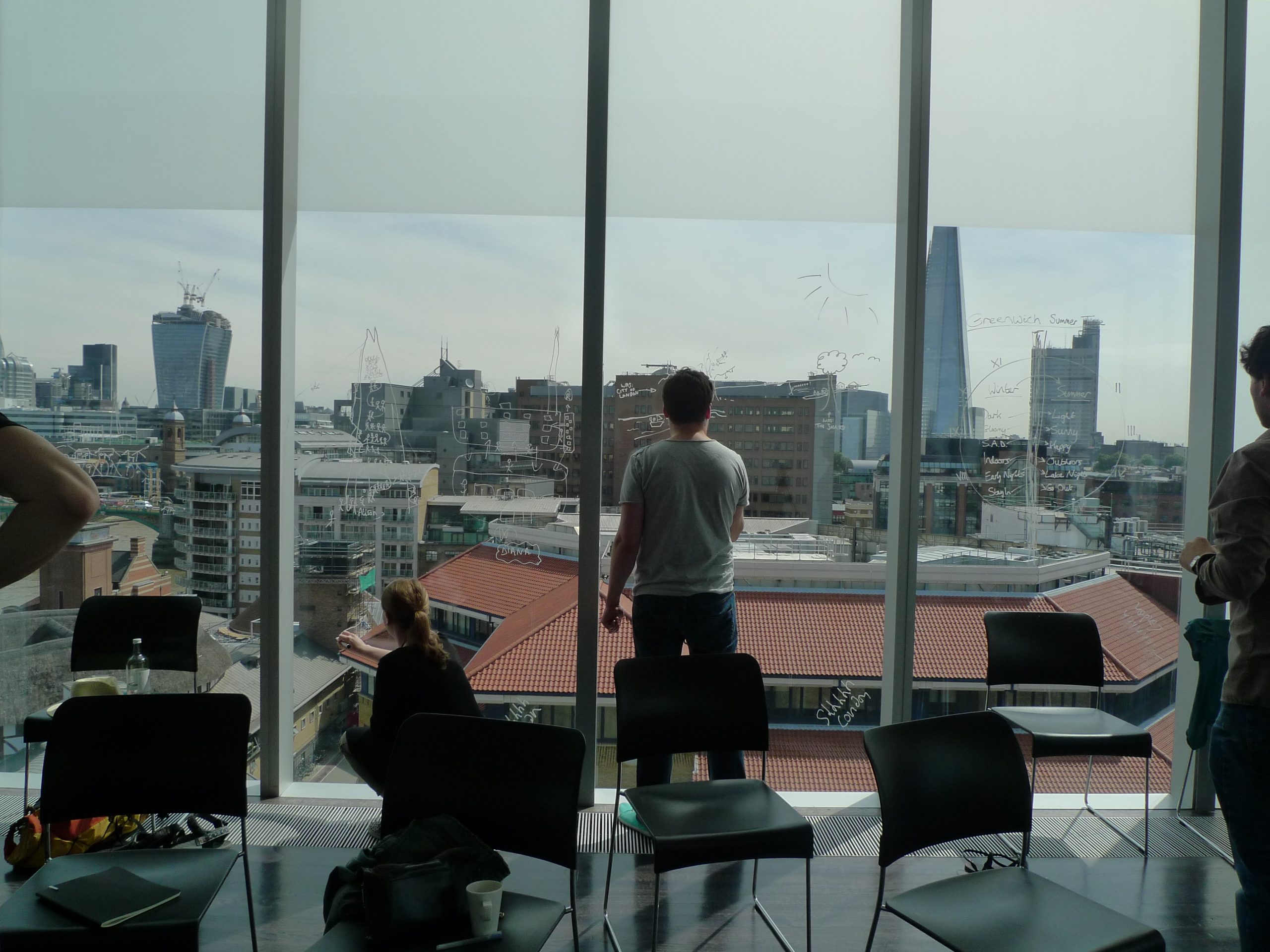BMW Tate Live Thought Workshop Series

As Creative Researchers for the BMW Tate Live Thought Workshop Series we invited 30 people, through a call open to anyone and everyone, to explore the possibility of change through ideas in art, thought, technology and more. From July 2013 to March 2014, we explored, debated and interrogated the possibilities of transformation in society. We did this in a series of 4 “thought workshops” – with participants from diverse backgrounds – a GP, school student, television producer, language school director, pensioner, fashion designer, neuroscientist and more.
Each workshop took a different form in response to the group and the changes being proposed – they might, for example, have involved journeys or visits or lectures or eating together. Each workshop built on the previous one and the people in it drove the momentum for change. Whether personal, local or global proposals for change, we wanted to put together diverse ways of thinking about and seeing the possibilities of change in the world. We knew we would most likely fail in such a Utopian endeavour– that was part of the project – but we also knew we would all learn something on the way, and perhaps take some small steps towards making change happen…
Thought workshop 1
We started of course with meeting everyone, playing with the ways in which society might seek to order and categorise us and hearing these ideas out loud for the first time. Professor Michael Brady introduced philosophical concepts about the necessary conditions for change, looking at vectors from Trivial to Important, Local to Global, Short-term to Long-term and so on, and we talked about ways in which the group might build connections and share their developments across the course of the year.
Thought workshop 2
The putative Utopian paths of the project were more clearly exposed in that first meeting, so it felt apt to spend some time interrogating questions about that imagined state. For the second workshop, spread throughout Hoxton Hall, a 145 year old Music Hall theatre, Dr Richard Noble talked about the history and politics of Utopias and a workshop from architect Andreas Lang focused on the Now, Far and Near of utopian consciousness. Food was provided by migrant women’s cooking project Mazi Mas, turning utopian ideals and the profound social commitment of their roaming restaurant into a wonderful lunch and dinner.
Thought workshop 3
The third time we met as a group – this workshop titled A Reality Check – was a return to examine our original ambitions and to test the possibilities of the group’s ideas in the wider world. We invited a range of thinkers, activists and provocateurs – including politician Catherine McDonald, sociologist Scott Lash, performance artist David Hoyle, curator Florian Malzacher, technologist David Cushman, School of Life curator Gemma Tortella-Proctor, entrepreneur Katie Harris and, to keep body together as well as mind, a fitness instructor – for one-to-one sessions with individuals. We moved the group into a gallery at Tate Modern, illuminated by lamps from their own homes, and invited the public in to join us for an intimate encounter with ideas – a necessary move towards taking thinking out into the world.
Public panel discussion
We set up a panel discussion that responded to our original provocation and invited director of Liberty, Shami Chakrabarti, composer Matthew Herbert, columnist Owen Jones and poet and novelist Ben Okri to take part. What would each of them do if they had a year to change something? The event, chaired with aplomb by then National Theatre Wales Artistic Director John McGrath, was galvanising – the panel’s thoughts were both inspiring and a further cold hard dose of reality. Change doesn’t come easy.
Thought workshop 4
The final Thought Workshop took place the day after this keynote event, reflecting back on the year and marking the process for each participant. The central question was “What next?” Where would their projects take them? The day was documented by illustrator Florence Shaw and writer Justin Hopper. Alongside them were performative publishing duo Ladies of the Press, who have drawn together the fragments of text, image, extracts from workshops and interviews that form this record of the project.
Ultimately perhaps here were fundamental shifts over time in many of the projects proposed by the participants. Some were doggedly pursued, yet more shifted shape, several were abandoned entirely and new ideas adopted. Yet if anything ties this experience together – and though it may be reductive to suggest that there is one common factor – it is that each participant in the Tate Live Thought Workshop series and those involved in curating it, including ourselves, spent time reflecting upon and in many cases acting on the question of how we might change ourselves.
BMW Tate Live was a partnership between BMW and Tate, which focuses on performance, interdisciplinary art and curating digital space.
The programme investigated transformation in all its guises and aimed to provoke debate on how art can affect change, intellectual, social and physical. It featured a series of innovative live performances and events including live web broadcast, in-gallery performance, seminars and workshops.